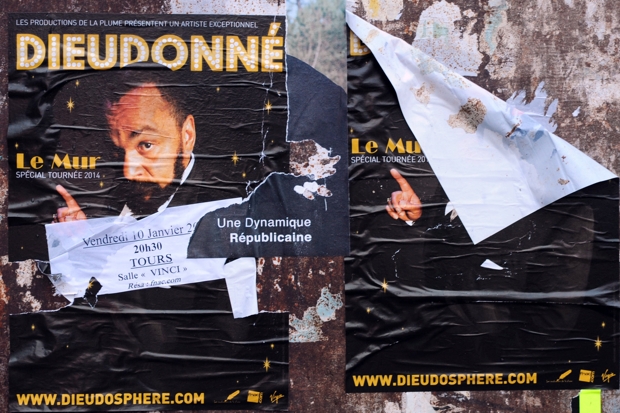One month on from the Charlie Hebdo massacre, free speech is still under attack. The outpouring of public revulsion at the bloody silencing of ‘blasphemous’ cartoonists after the attack was inspiring. It was a visceral display of support for the right to speak one’s mind – as crudely, offensively and blasphemously as one chooses – that has been absent for some time. But deep-rooted ambivalences have remained – and now these look to be exploited by policymakers looking to institute blasphemy laws of their own.
When it comes to cracking down on aberrant ideas, Europe has long been leading the way. Restrictions on hate speech are in place across Europe. Enshrined in the UK’s Public Order and Racial and Religious Hatred acts, and mirrored across the continent, these are binding, state sanctions on speech and expression that have escaped the recent flurry of support for free speech.
Such laws are routinely used to silence speech and squish dissent and – with those bloody attacks fresh in our minds – the reach of these laws look to be extended even further. Last week, the Community Security Trust published a report stating that anti-Semitic incidents had more than doubled in 2014, leading to the government’s All-Party Parliamentary Inquiry into anti-Semitism to call today for further restrictions on anti-Semitic speech online.
The report does make for grim reading. Renewed conflict in Gaza last year spurred an all-time high in anti-Semitic ‘incidents’ on Twitter and Facebook. References to Hitler and the Holocaust abounded, as keyboard politicos lapsed readily from nominal anti-Zionism into full-blown anti-Semitism. Now, in an attempt to curb this worrying trend, policymakers are calling for so-called internet ASBOs to be enforced on those who spew such bigoted bile online.
But as disgusting as we may find the rise of hashtag anti-Semitism, the calls to further strengthen hate-speech laws could only spell disaster. The thing about censorship, even in its most well-meaning forms, is that it simply doesn’t work. It lends prejudice glamour and inflames tensions rather than alleviating them. For proof of this one need look no further than Dieudonné M’bala M’bala, the French anti-Semite and erstwhile comedian, who has presented his now-routine arrests under French hate-speech laws as proof of his ‘anti-establishment’ credentials. Given that much of modern anti-Zionism is mired in conspiracy theory – in tinfoil-hat musings about the support and favour that Western governments and business lend evil Israel – state sanction would only further fan the flames.
But, more crucially, cracking down on vile speech does nothing to tackle the vile ideas which fuel it. This is particularly true of hate-speech legislation, which, by definition, only concerns itself with the emotional, rather than ideological, content, of what is being said. Instead of tackling backward ideas, hate-speech laws pathologise them, consigning them to the irrational loony bin of political discourse rather than dissecting them and dismantling them in full view.
It’s a sad truth that, today, holding firm on liberal, Western values has become conflated with a blithe complicity with prejudice. The mantra of hate-speech laws is ‘intolerance of intolerance’, and this Orwellian idea has debilitated progressive politics. If we want to tackle the rise of anti-Semitism we need to tolerate speech – no matter how odious – while stiffening our resolve to challenge it. Rather than leave it to the censors of the state, it’s time we got a little angry, and argumentative, ourselves.
Tom Slater is assistant editor at spiked and coordinator of the Free Speech University Rankings
 The Spectator is holding a debate ‘The most important civil liberty of all is the right not to be blown up’ at 7pm on Thursday 26 March at The Royal Institution, W1. Chairing the debate will be Andrew Neil. For tickets and further information click here
The Spectator is holding a debate ‘The most important civil liberty of all is the right not to be blown up’ at 7pm on Thursday 26 March at The Royal Institution, W1. Chairing the debate will be Andrew Neil. For tickets and further information click here







Comments